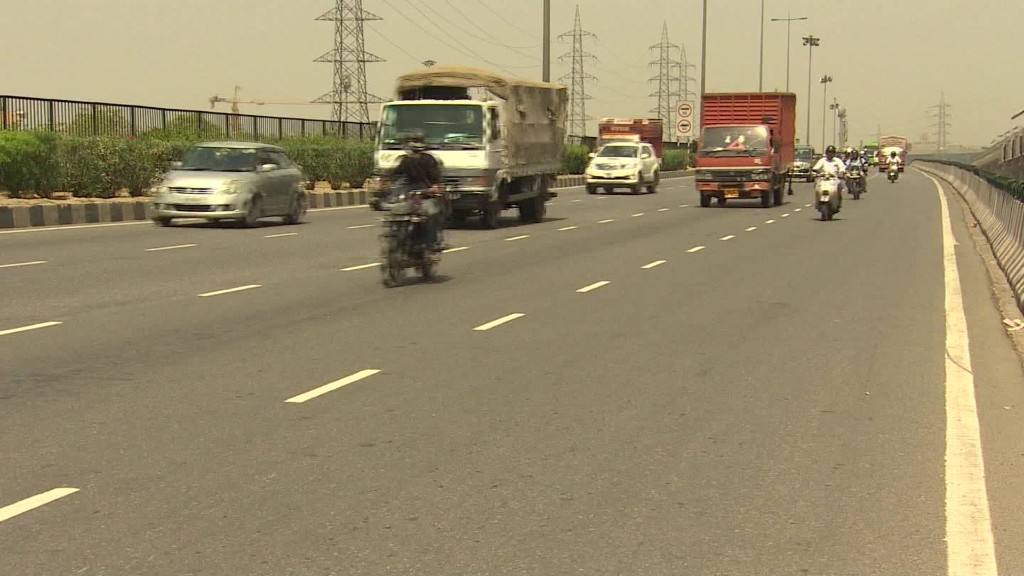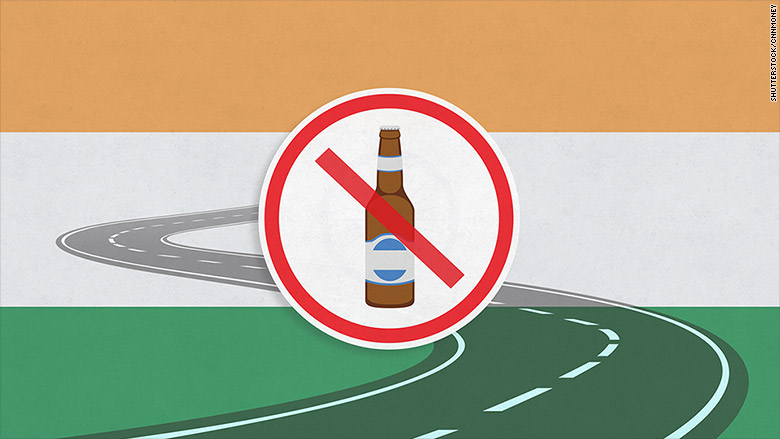
For thousands of bars in India, happy hour has become decidedly unhappy.
Since April 1, the sale of liquor near major roads has been banned. The move was supposed to reduce the number of deaths caused by drunk driving, and was aimed at the roadside shacks that line highways across the country.
The original Supreme Court ruling in December appeared to apply only to shops. But on March 31, just hours before the ban was due to take effect, the court said restaurants and bars would also have to comply.
That's thrown India's restaurant industry into a state of near panic.
Every bar, from luxury hotel to beer shack, within 500 meters (547 yards) driving distance of state and national highways is now dry.
"Just in [rough] terms we are looking at close to about $10 billion worth of annual revenue loss in front of our eyes right now," said Rahul Singh, honorary secretary of the National Restaurant Association of India. "We're talking about hotels and restaurants and clubs and golf clubs and even armed forces [clubs]."
New Delhi's satellite city of Gurgaon, which straddles a national highway, is one of the hardest hit areas. The new law threatens the business of every bar and hotel off the highway.
Related: India shrugs off cash crisis to post 7% growth
Gurgaon is home to the India headquarters of dozens of multinational companies.
"Why would anyone go to a Starbucks when there's no coffee?" asks Singh, who is also the founder and CEO of The Beer Café, a chain of more than 40 pubs across India.
"We serve beer. Yes, we have food and snacks but people come to have beer and then they have food with it. Beer first, food later," Singh told CNN.
Singh estimates revenues at The Beer Café in Gurgaon's Cyber Hub -- a giant complex of offices, bars and restaurants -- have fallen by 99% since the ruling took effect this month.
Related: McDonald's new breakfast menu is wonderfully weird
In addition to the lost revenue, billions of dollars worth of investment is at risk across the industry. He estimates the new laws will cost India millions of jobs.
Singh says the 500-meter rule is arbitrary and destructive for future investment.

"The impact isn't just for today. The impact is for the future. Where is my certainty of business?" asks Singh. "Why will I start a business because tomorrow this distance could be a kilometer."
Desperate to keep their customers, some businesses are already thinking of ways of getting around the law. At Cyber Hub, the restaurants are talking about building a new road access to the rear of the complex to replace the existing driveway.
Related: China joins race for booming Indian car market
The new route would be longer than 500 meters, and would therefore allow its restaurants and bars to serve alcohol once again.
Prince Singhal, the founder of the Coalition Against Drunken Driving (CADD), has sympathy for the struggling businesses but said India needed a jolt.
"There are 60,000 fatal accidents on Indian highways every year, and more than 70% of these are linked to alcohol," he said.
The CADD says that India accounts for 10% of global road fatalities, with only 1% of the world's vehicles. Drink driving is illegal, but Singhal says there's a lack of awareness of the dangers, as well as lax policing.
"The Supreme Court's move is a welcome decision," said Singhal. "It's a beginning."

